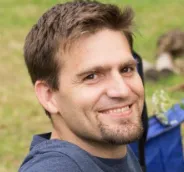Thanks to technology brought about by science, I was able to spend two hours tonight with amazing thinkers like Sam Harris, Lawrence Krauss, Peter Singer, and Steven Pinker discussing moral philosophy and science. It was such a great panel discussion! If you're interested in morality and the role of science in our understanding of ethics and philosophy, I really think you'll enjoy it.
Since losing eternity, I've been really focused on understanding my own moral framework. I've really enjoyed the books by Sam Harris I've read like The Moral Landscape and Lying as well as the books by Steven Pinker like the Blank Slate and The Better Angels of our Nature. I think they, along with the rest of the panelists, gave a great performance and valuable summary of their worldviews, perspectives, and scholarly evidence during this presentation.
I really do want to see the world improve and be part of creating a world we all want to live in. I think so much of that relies on not only a solid epistemology, but also a clear, agreed upon, approachable and rational understanding of morality and ethics. I'm currently leaning towards the Sam Harris / Lawrence Krauss camp which thinks science can tell us a whole heck of a lot about morality and ethics, though I also think Steven Pinker is a genius, and he makes some really good points about how it's a "yes and no" answer. All of our experiences from the creation of the novel to our position on Maslow's hierarchy of needs influence our understanding of morality. Science does play a huge role in helping us understand "what is" but there are many other aspects of our existence required to determine what we should do next.
One of the things I really enjoyed while watching this was the attempt to discredit the "You can't get an Ought from an Is" argument. I also liked how little Krauss (and to some degree, Harris, though he is quite a Statist) value deferring to an authority such as an ancient philosopher. I like how much they want to use the best understanding of reality as it is known today to make judgements on what should be done to improve the world.
Though I've read The Moral Landscape, I think Harris summed up his argument well with his opening statement that if we agree a worst case scenario of the lowest possible state for human wellbeing is possible, then we have to then agree there exists states of physical reality which would be preferred to this state and lead to increased wellbeing. If we can admit that, then we now have a mechanisms for science to rationally discuss what changes in physical reality might take place to lead to better outcomes along that spectrum of conscious wellbeing. Much like medical science can't perfectly define "health," science will have trouble defining universal "wellbeing" but that does not prevent it from making significant progress.
That said, I also really liked Peter Singer's argument that there are various states of mind and they are somewhat different in terms of evaluating what the world "is" and then setting goals and desired outcomes for what the world should or could be and taking appropriate action to bring about that new reality.
Hopefully you find this stuff as fascinating and as interesting as I do. If you get a chance, add this video to your watch later list at least and give it a watch eventually. These are some of the most interesting thinkers of our time (IMO) and thanks to the wonders of technology, we get to hang out with them and hear there thoughts about increasing wellbeing in the world.
Luke Stokes is a father, husband, business owner, programmer, voluntaryist, and blockchain enthusiast. He wants to help create a world we all want to live in.


